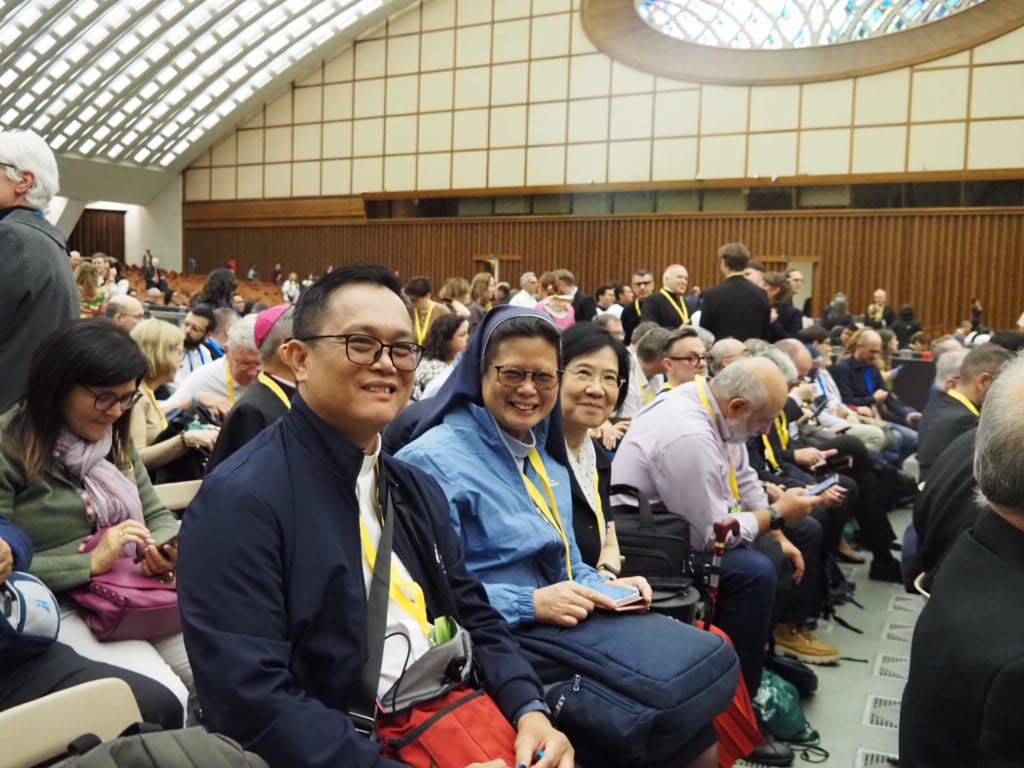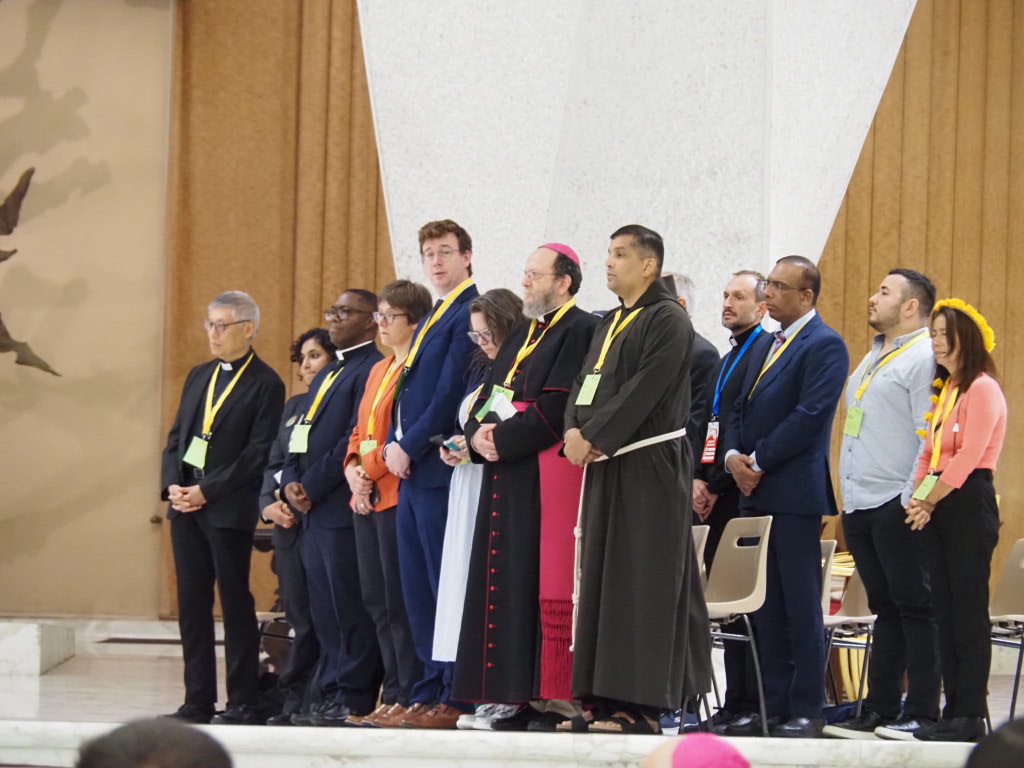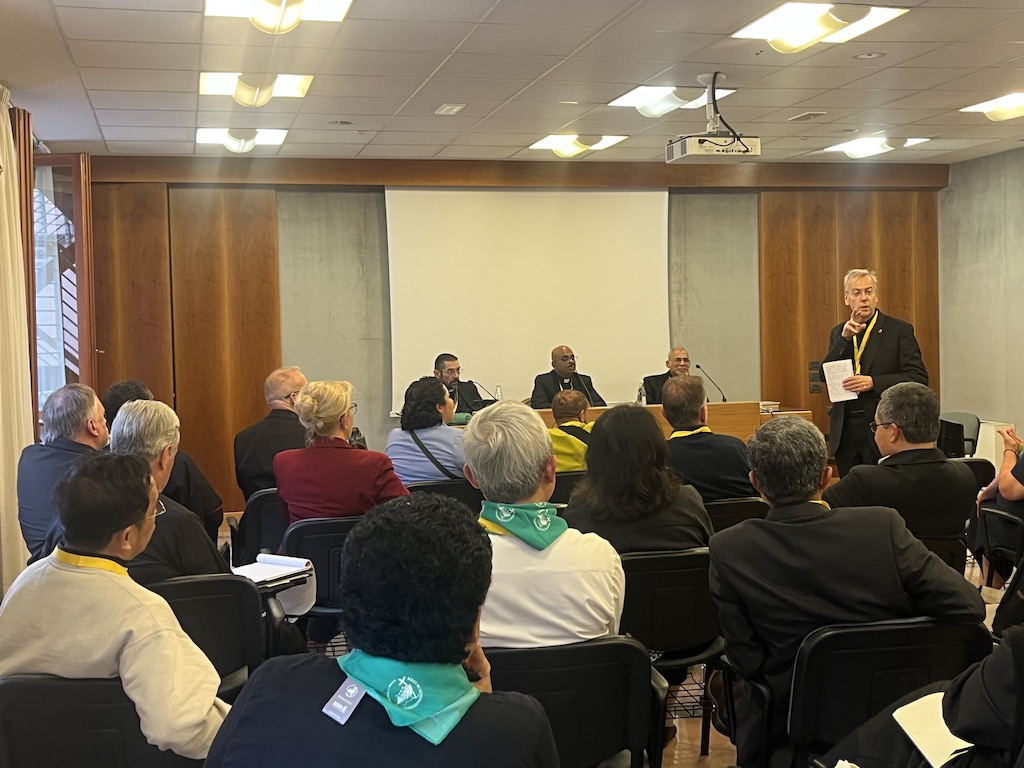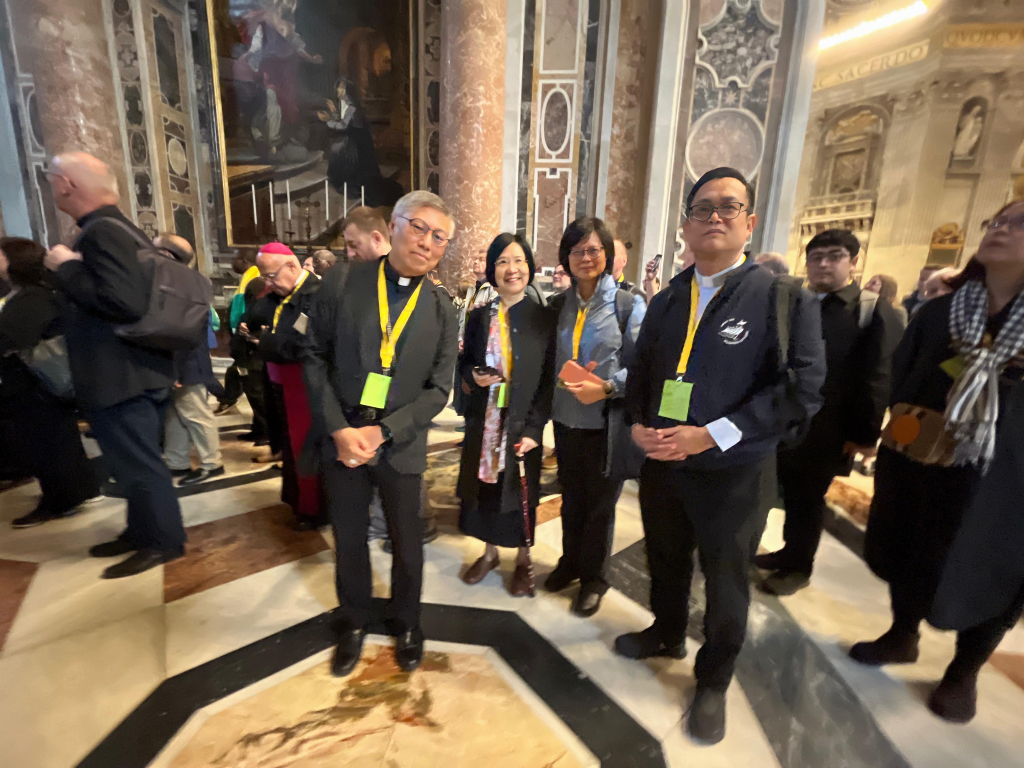
VATICAN (SE): From October 24 to 26, the Vatican hosted the Jubilee of Synodal Teams and Participatory Bodies, bringing together close to 2,000 participants from around the world.
Cardinal Stephen Chow, S.J., bishop of Hong Kong, attended with representatives from the Diocesan Ad Hoc Committee for Synodal Development, including Vania Cheng, Divine Word Father Jay Francis Flandez, and Precious Blood Sister Christina Cheung. They shared that the event deepened their understanding of how synodality is promoted worldwide and reinforced their commitment to working together on this journey.
After the opening ceremony on October 24, representatives from seven regions presented regional progress reports to the pope, engaging with him in dialogue on related topics.
The next morning, after a prayer service, participants crossed the Holy Door of St. Peter’s Basilica before attending a series of seminars and workshops. Topics included Designing Participatory Processes, Youth and Synodality, Nurturing Synodality in the Local Church, and Shaping the Mission through Discernment and Accountability.



The Hong Kong delegates reflected that the gathering provided firsthand insight into the realities, challenges, and practical approaches to implementing synodality across diverse regions. It also offered an invaluable opportunity to listen, exchange ideas, and experience both the fruitfulness and difficulties of putting synodality into practice.
Cardinal Stephen noted that young Catholics are supportive of a synodal Church, yet they often face tensions. Many aspects of their lives are beyond their control, but they are still expected to be competitive in different domains
The event also allowed some of the participants of the Synod of Bishops from the past two years to reconnnect. Cardinal Stephen expressed gratitude for these connections and, after hearing updates on implementation and challenges, felt an even stronger appreciation for the progress achieved thus far.
“During the session, I attended a seminar by Cardinal Mario Grech, secretary general of the Synod of Bishops, and listened to sharings on the situation across different continents,” Cardinal Stephen said.
“Cardinal Jean-Claude Hollerich, S.J., relator general of the Synod of Bishops emphasised that each region can promote synodality according to its own contexts. The secretariat will provide relevant phase-by-phase guidelines, but dioceses do not need to approach the work with a goal-chasing mindset,” he said, adding, “Instead, they can proceed based on their own contexts and realities. Additionally, Cardinal Grech stressed that this is synodality within the Catholic Church—not the same as that of other churches—so it includes the Petrine Office, Church hierarchy, and the People of God.”

Cardinal Stephen noted that young Catholics are supportive of a synodal Church, yet they often face tensions. Many aspects of their lives are beyond their control, but they are still expected to be competitive in different domains. A further challenge is that, while young people support synodality, they seldom see it practiced in parish life, particularly due to limited opportunities to participate in decision-making.
The Hong Kong participants observed that the diocese is well-developed and equipped with resources. They suggested that fostering greater synergy among various structures and groups could generate more momentum for evangelisation and the Church’s broader mission
In response, Cardinal Stephen emphasised that the Church—particularly at the parish level—must provide greater support to young Catholics, who are both the present and future of the Church. “In a way, they serve as a kind of pulse monitor for the Church,” he remarked.
Looking ahead, he hopes to help more people—especially priests and religious—understand and experience synodality.
The Hong Kong participants observed that the diocese is well-developed and equipped with resources. They suggested that fostering greater synergy among various structures and groups could generate more momentum for evangelisation and the Church’s broader mission.
To this end, one member expressed a desire to promote synodality in schools, encouraging students to care for those around them and engage in community affairs. Another is working to build basic ecclesial communities among migrant workers and recruiting and training more volunteers. A third highlighted the importance of listening within families and workplaces to fully embody the spirit of synodality.
During the October 26 Mass at St. Peter’s Basilica, Pope Leo XIV reiterated in his homily that the supreme rule in the Church is love, and all are called to serve. He emphasized the importance of listening to one another and participating together. The Pope also reminded those present that no one possesses the whole truth; instead, everyone must humbly seek it together. “Let us commit ourselves to building a Church that is entirely synodal… therefore committed to serving the world,” he said.
Following the celebrations, Cardinal Stephen, a member of the Vatican’s Dicastery for Interreligious Dialogue, remained in Rome for the October 28–29 commemorative events marking the 60th anniversary of Nostra Aetate—the Declaration on the Relation of the Church with Non-Christian Religions from the Second Vatican Council.








